Table of contents
Looking to turn your design ideas into real products and a brand, from apparel and accessories to home goods and more? Print on Demand is the way to do it without sky-high upfront costs, holding inventory, or handling fulfillment.
This article covers what Print on Demand is, the benefits of using this business model, and how to get started strong on the road to success.
How does Print on Demand work?
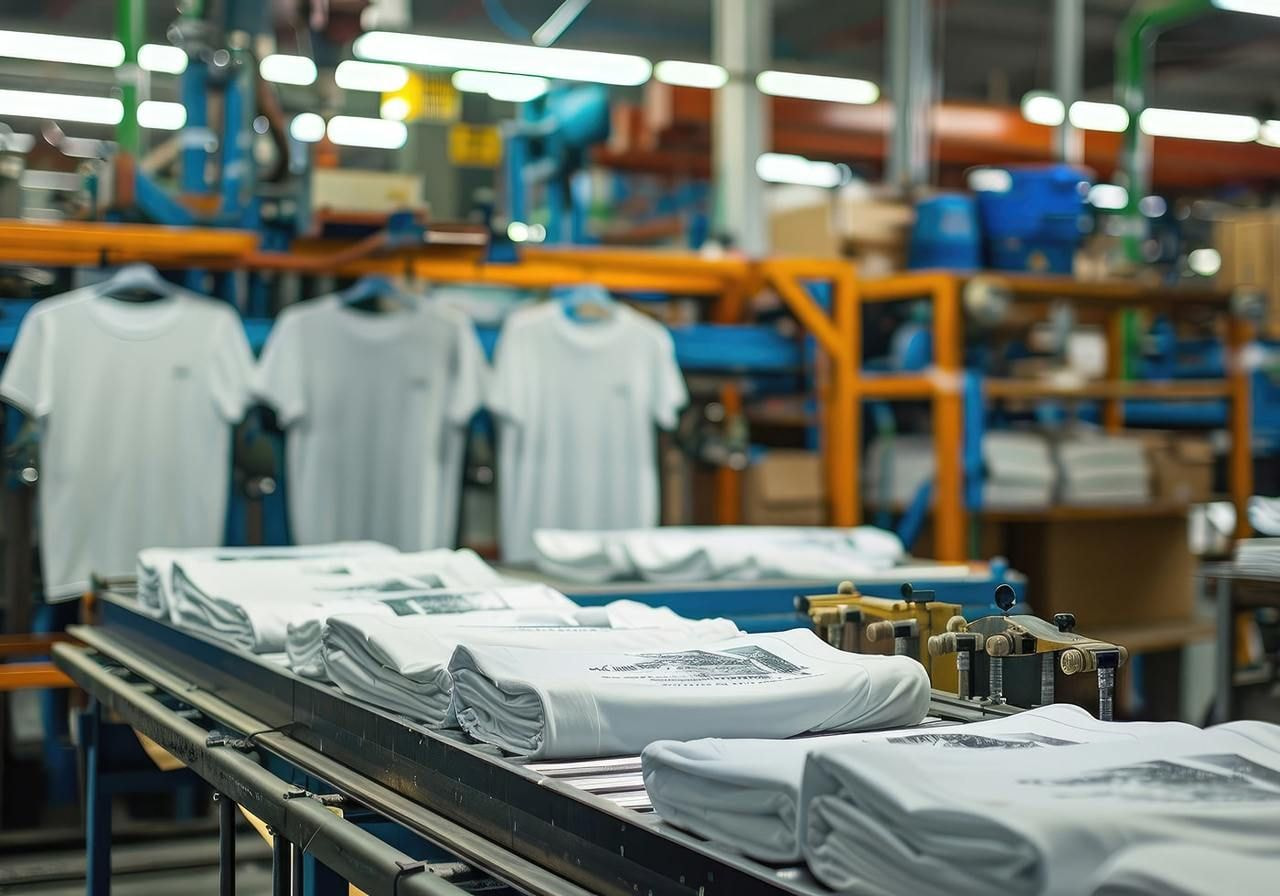
Print on Demand (POD) is a business model that people use to sell custom products online. Instead of making and printing items in advance, each product is made only after a customer places an order.
Here’s how the process works:
-
You choose a print-on-demand provider (also known as your Print Provider or POD partner) and design products from their catalog to sell in your online store, like t-shirts, hoodies, or mugs.
-
A customer orders from your store.
-
That order is automatically sent to your print-on-demand provider, who then prints, packs, and ships the item directly to the customer under your brand name.
-
You keep the profit – the difference between your retail price and the production cost charged by the print-on-demand service.
Because products are only printed when a customer orders, there’s no risk of unsold inventory or unnecessary waste.
You focus on creating designs, selecting products that appeal to your target audience and niche, and marketing directly to them. Since you only pay for what you sell, there are very minimal upfront costs and plenty of opportunity to experiment with new designs as often as you like.
Pros of Print on Demand
-
No upfront investment: You only pay after a customer places an order.
-
Quick to launch: Set up your store and start selling in hours.
-
Creative freedom: Focus on designing while fulfillment is handled for you.
-
Low risk: No need to manage inventory or invest in printing equipment.
Cons of Print on Demand
-
Slightly lower profit margins: One-off printing costs are higher than bulk orders.
-
Slower delivery: Orders are made on demand, which can extend shipping times.
-
Less control over packaging: The provider chooses whether to use a box, bubble mailer, etc.
-
Product variety may be limited: You're restricted to what your POD provider offers.
Valuable read: How to make money with Print on Demand


Who can benefit from a print-on-demand business?
Anyone with an idea. Artists, entrepreneurs, big businesses, and everyone in between. There are endless niches that unite communities of people who are passionate about the same thing. You can be the person who turns their passions into an amazing brand they love to buy from.
Artists and creators
Print-on-demand services let creators generate passive income while focusing on the artistic process above all else. They can also sell their art at higher margins as custom products than they often can as original pieces that require much more time and effort to make.

Starting an eCommerce store also helps foster community support, encourages creative expression, and lets you make money as an artist independently and sustainably.
eCommerce entrepreneurs
For eCommerce entrepreneurs who don’t have a huge budget or endless time, Print on Demand reduces overhead and streamlines operations. This model gives more room for experimentation with custom products, helping you target niche markets and start a clothing brand with less effort.

Global brands and enterprises
Even large brands use the print-on-demand model to test new product ideas, launch limited collections, or run influencer collaborations. With a reliable print-on-demand provider handling logistics, companies can maintain product quality while reaching global markets.
On-demand printing methods
Your chosen printing method affects everything from how your products look to how much they cost. Some methods are better for bold colors, others for fine detail or softer fabrics. Here are the basics to help you choose what’s best for your products – and your customers.
Screen printing
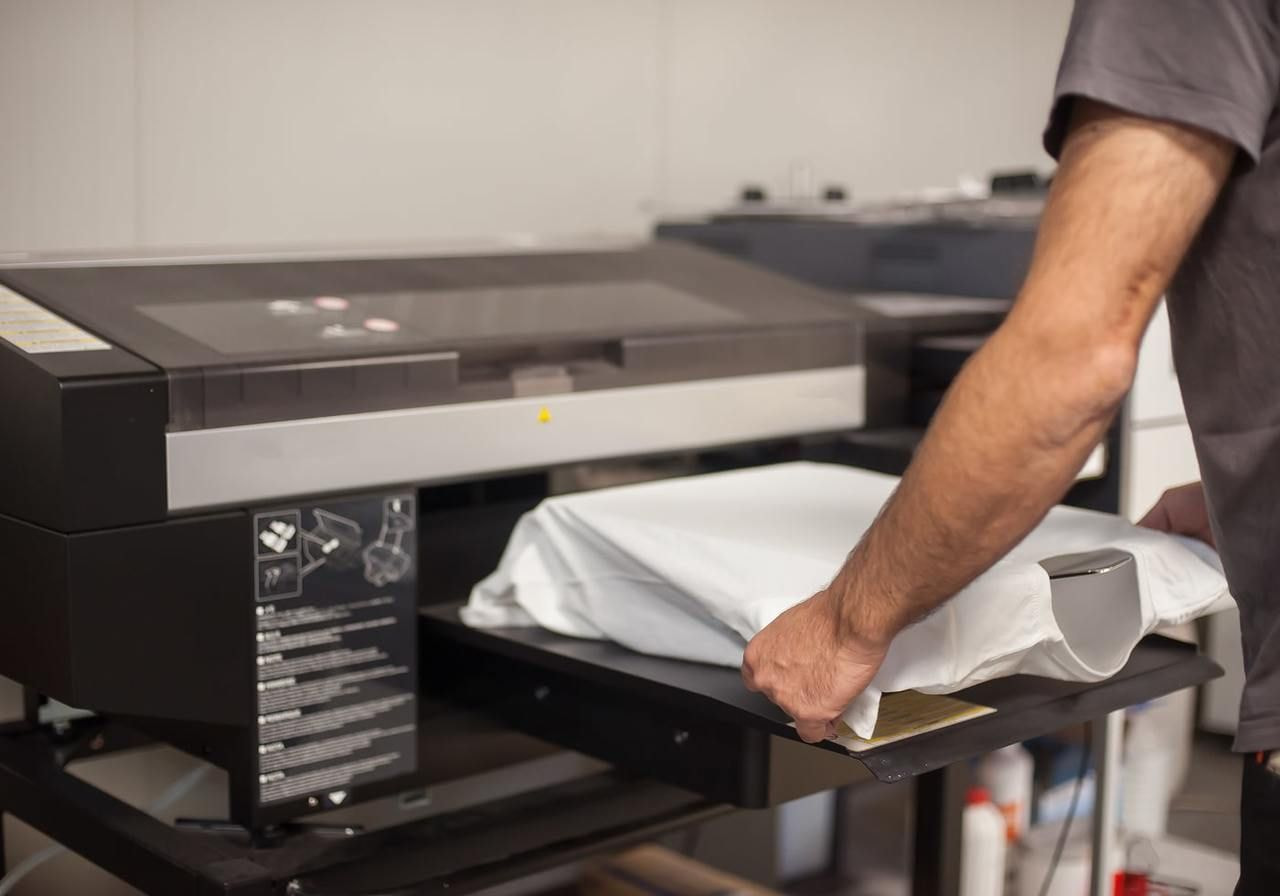
Screen printing is best for bulk orders and simple, bold designs. It uses stencils and ink pushed through mesh screens to apply color to the fabric. It’s ideal for simple, bold designs, but less suited for detailed, multi-color graphics.
How screen printing works:
-
A stencil is created for each color in the design.
-
Ink is pushed through the mesh screen onto the fabric using a squeegee.
-
Each color is applied separately and dried between layers.
-
The printed fabric is cured under heat to set the ink.
Because of its setup time and color limitations, this printing method isn’t the most cost-effective for a print-on-demand business focused on small-batch or one-off designs. However, some print-on-demand services often offer it to larger brands that want a bold look in large quantities.
Learn more: DTG vs. screen printing: Choosing the right apparel printing method for you
Direct-to-garment (DTG) printing
%20printing-1-min.jpg)
DTG is a digital printing method that sprays water-based ink directly onto fabric, leaving it to soak in and bind to the fibers. It’s a go-to technique for full-color, bold graphics, making it a strong choice for sellers targeting quality-conscious shoppers with vibrant custom clothing.
How DTG printing works:
-
The fabric is pre-treated to help the ink bond properly.
-
A digital printer applies the design directly onto the garment.
-
The printed fabric is cured with heat to set the ink.
-
The garment is inspected for print quality before shipping.
This method works well for 100% cotton or high-cotton content sweatshirt and t-shirt printing, but the designs need to be sharp and use solid colors. Otherwise, you might see issues with uneven gradients. Most print-on-demand companies offer DTG, so definitely give it a try to see if it’s the best printing method for your designs.
For the best color results and high-resolution graphics, use an RGB color profile. This will ensure the prints look as close as possible to the colors you see on your screen.
Learn more: DTG vs. DTF Printing: Which method is better for your designs?
Direct-to-film (DTF) printing
%20printing-min.jpg)
Direct-to-film (DTF) printing uses polyethylene (PET) film and heat to apply designs onto various fabric types, including polyester, fleece, and cotton blends. This process delivers sharp detail and excellent print quality, making it a favorite for intricate graphics, photos, and small text.
Printful uses DTFlex – an exclusive version of DTF – to take the color richness and fine details of this printing method to the next level.
How DTF printing works:
-
The design is printed onto PET film using water-based ink.
-
A powder adhesive is applied to the printed film.
-
The design is cured and heat-pressed onto the fabric.
-
The film is peeled off, leaving a durable print on the garment.
Unlike DTG, it isn’t limited to cotton – you can use it for fabrics like polyester, fleece, and blends. And unlike screen printing, you don’t need large runs to make it cost-effective.
Learn more: DTF vs. screen printing? Which method fits your brand?
Sublimation printing
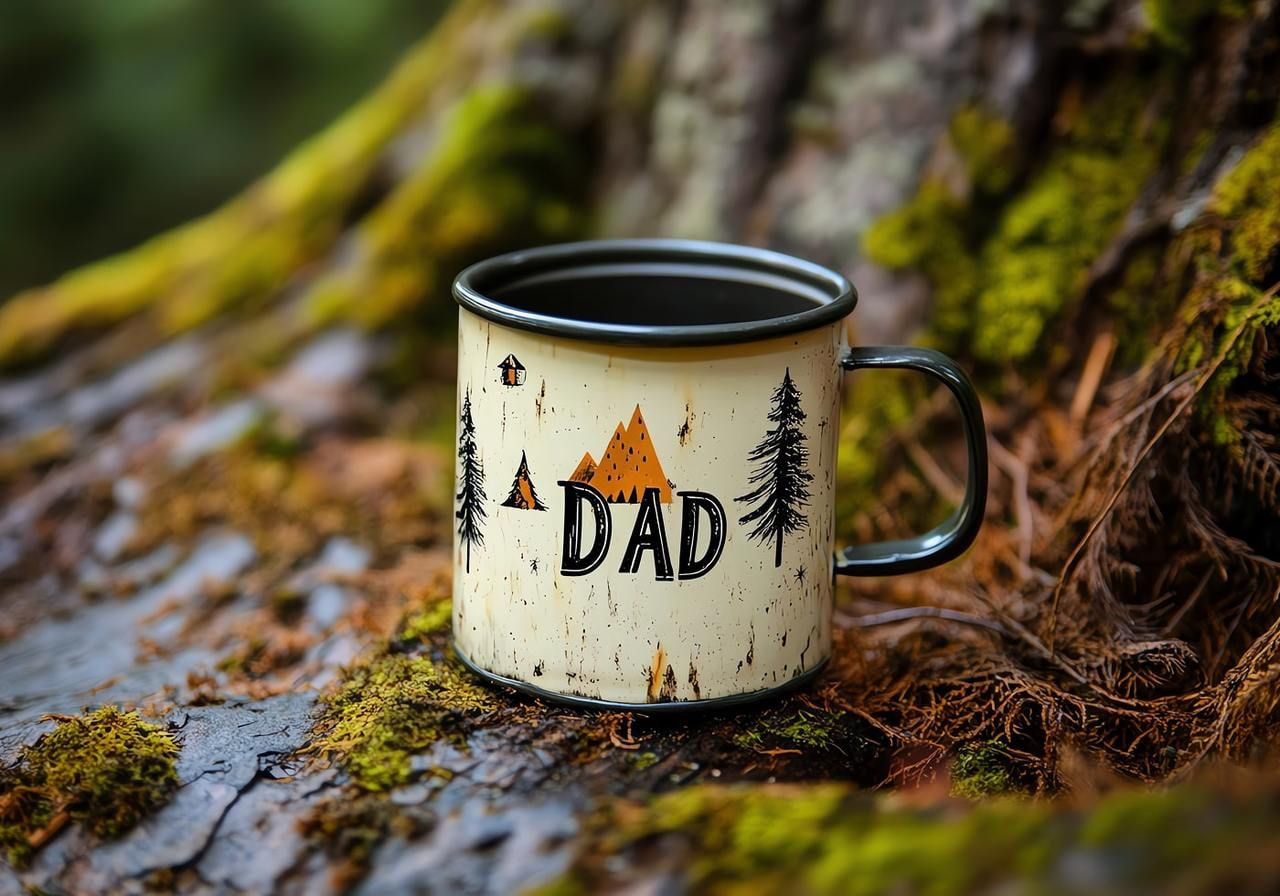
Sublimation, also called all-over printing, uses heat to fuse ink into polymer-coated surfaces. It creates vivid, long-lasting designs on polyester apparel, mugs, and other coated products.
How sublimation printing works:
-
The design is printed on special transfer paper using sublimation ink.
-
The printed paper is placed on a polymer-coated item (like a mug) or polyester fabric.
-
A heat press transfers the ink from the paper into the material.
-
The final product is cooled and checked for color, clarity, and alignment.
This technique provides long-lasting, high-quality results with a smooth texture on the printed surface. However, for the ink to bond properly to the material, sublimation only works on polyester fabrics or polymer-coated items, so you can’t use it on cotton or untreated surfaces.
Learn more: What is Sublimation Printing and How Does it Work?
Top product picks for your print-on-demand store
Picking the right print-on-demand products is key to running a profitable online business. Here are some top-performing options for your store.
Custom t-shirts
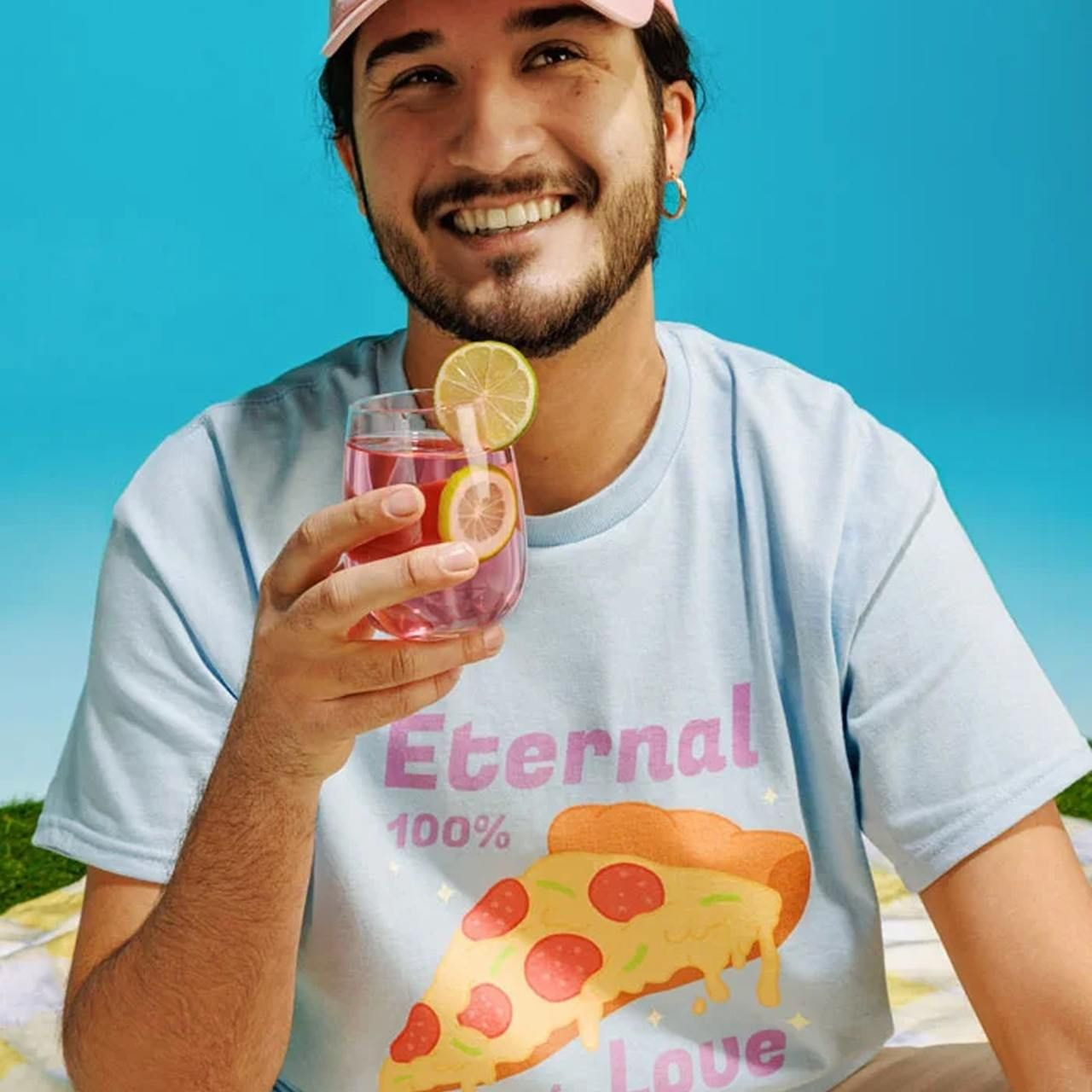
T-shirts are the backbone of Print on Demand. They’re a consistently top-ranking item – inexpensive to make, easy to sell, and everyone wears them. A good tee is the perfect way to test designs, build your brand, and reach a wide audience.
Custom hoodies
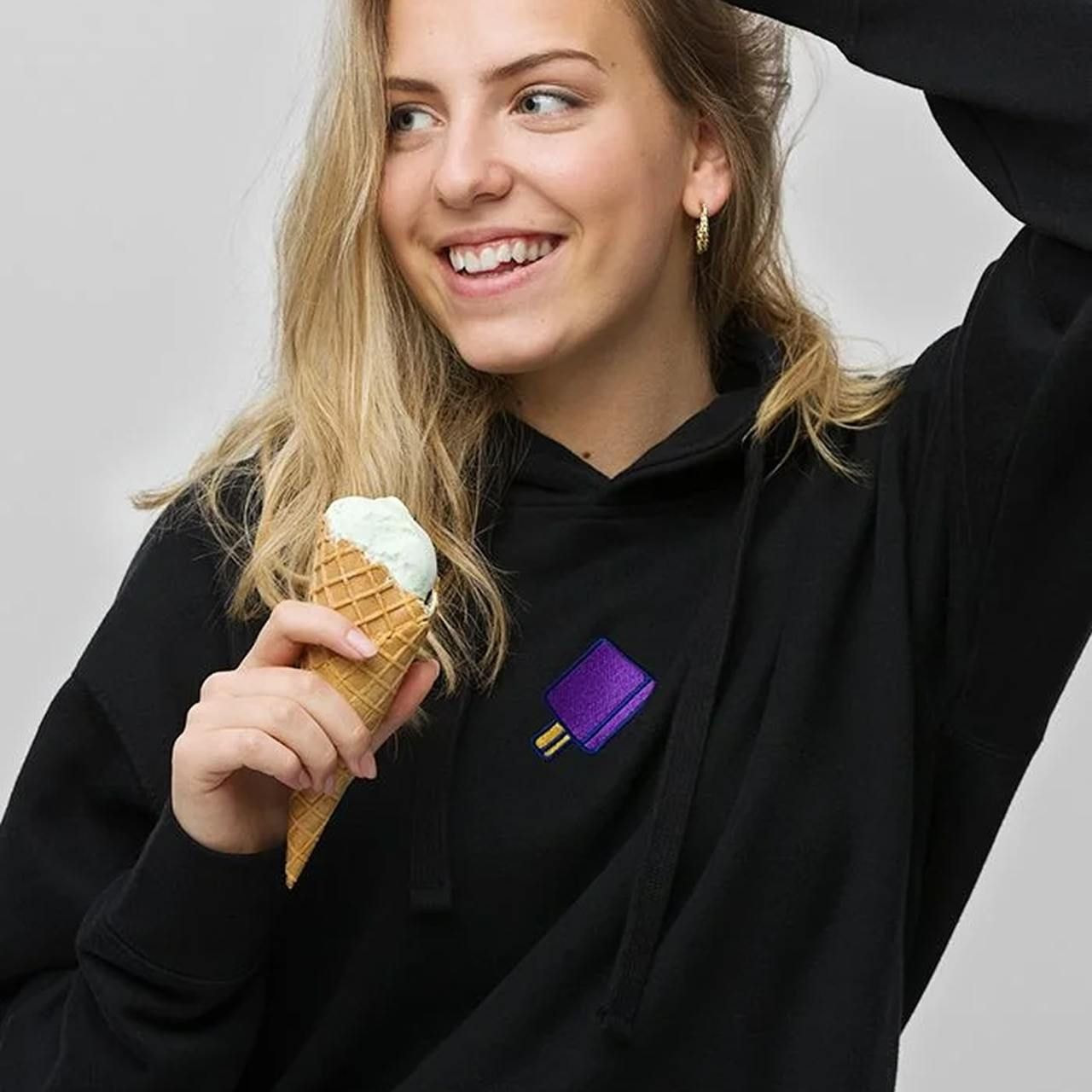
Hoodies sell year-round. They feel cozy and last long, and shoppers are willing to pay more for them when they feature a snazzy design. This is the perfect product to include in seasonal drops or special collections for your print-on-demand niche.
Eco-friendly products
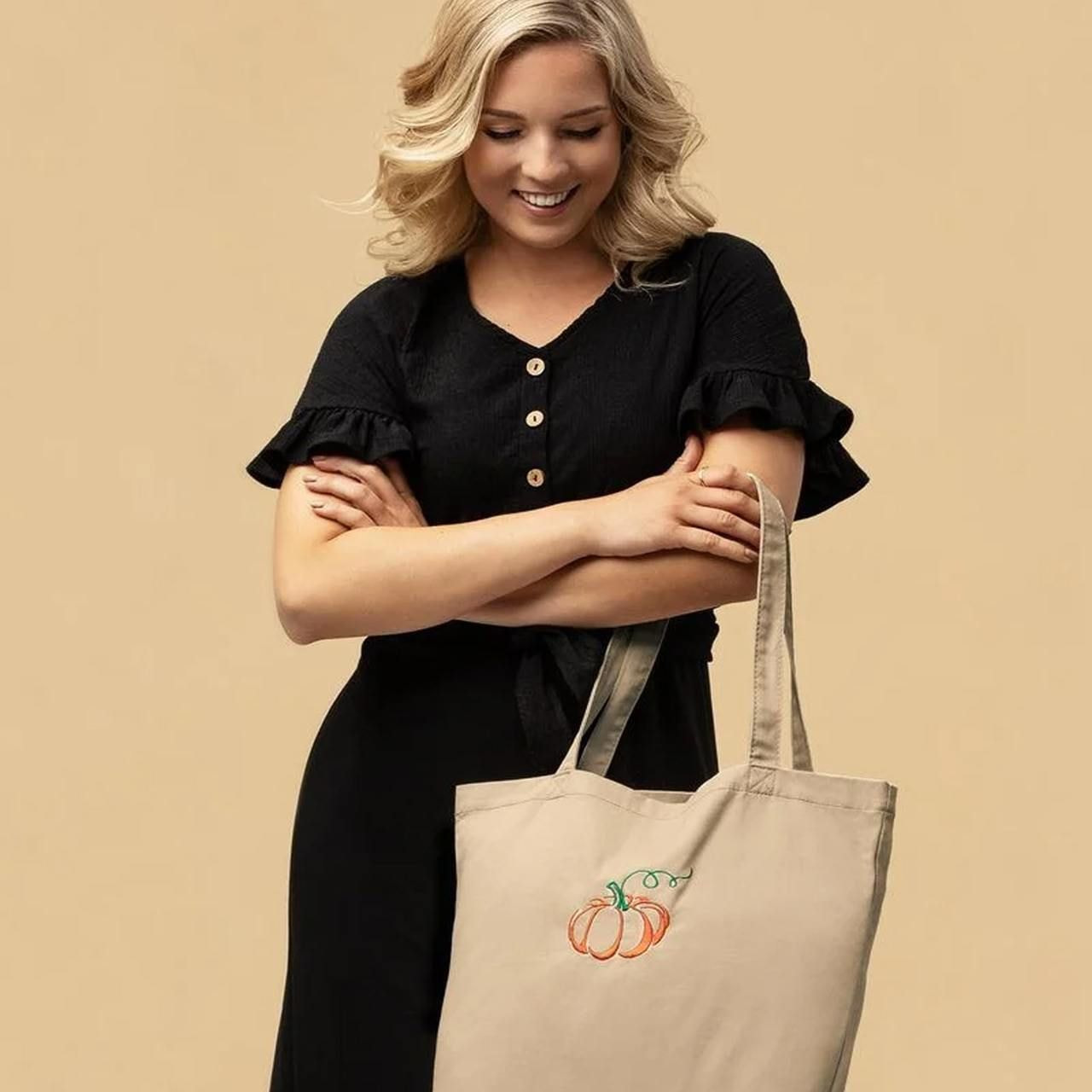
Shoppers care about the planet, and they want options that match their values. Organic cotton tees, reusable totes, and recycled hats let you sell products people feel good about buying.
Custom stationery
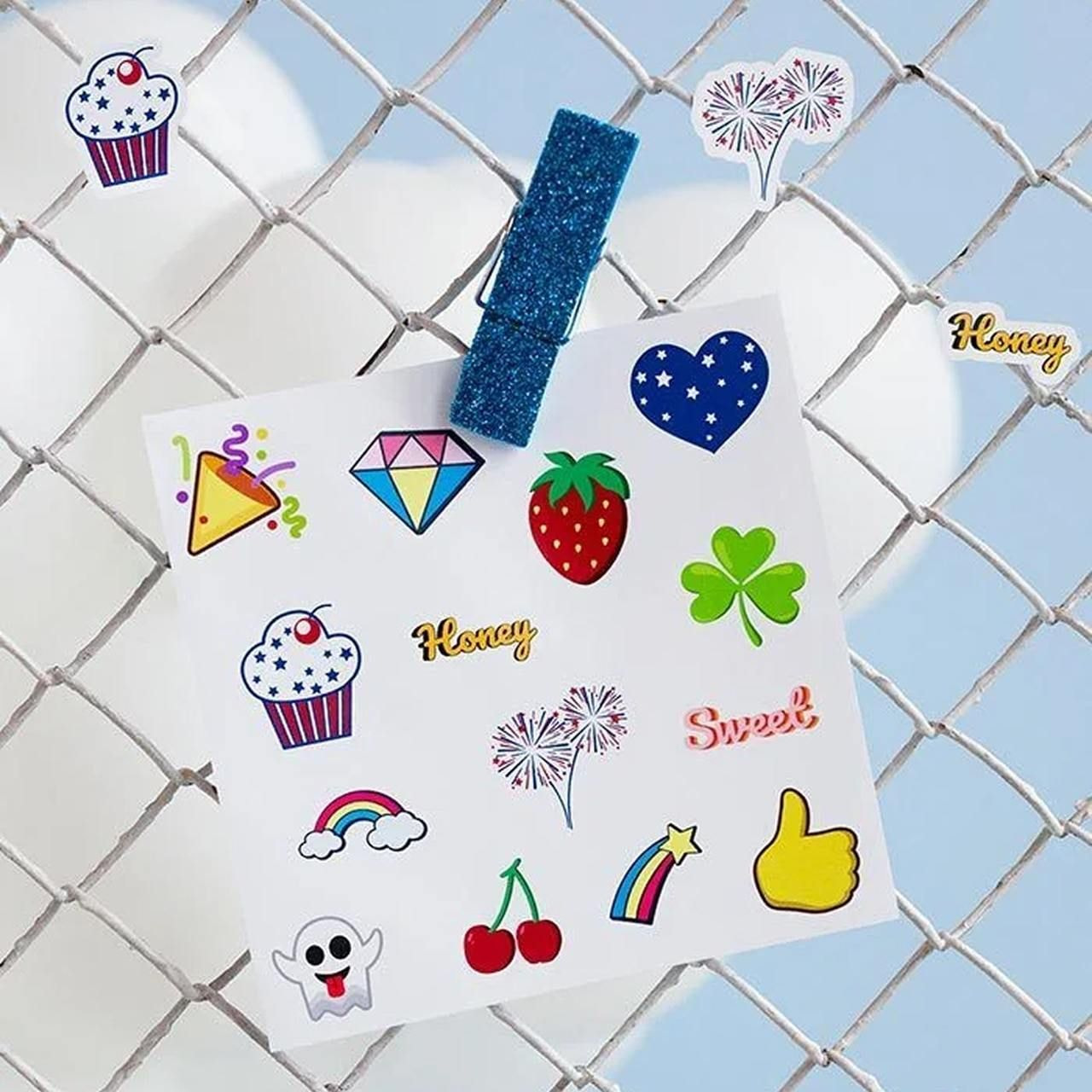
Stationery is quick to launch and easy to sell. Journals and notebooks work well for students, professionals, and gift buyers. They’re a low-cost way to expand your product selection and bring in repeat sales.
Drinkware
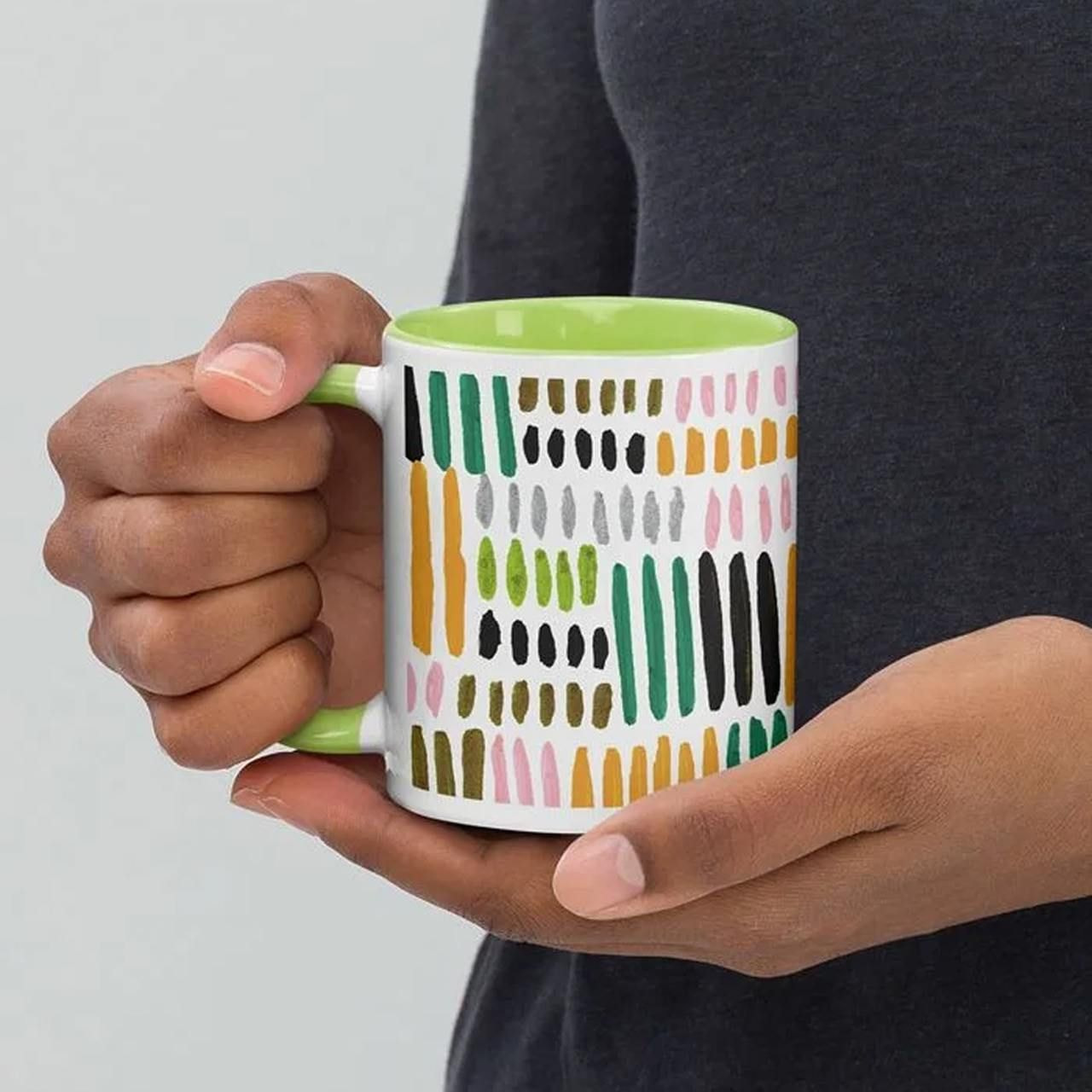
Custom mugs, water bottles, and tumblers are proven bestsellers. They work for gifts, fan merch, and everyday use, and they’re super easy to market on social media.
How to choose your print-on-demand provider
Choosing the right print-on-demand partner can make or break your store. Some sellers stick with one provider, others mix and match to widen their product range. Here are the key things to look at before you decide.
Facility locations
Find out where each POD company operates. Ideally, they should have multiple locations worldwide, which minimizes shipping costs for your global customers.
You might be okay with a print shop just around the corner from your house right now, but don’t forget about scaling for the future, or selling to a larger base of loyal customers from abroad.
As your business grows, you should always have the option to produce high-quality products without forcing your customers to pay more for shipping.
Fulfillment times
Print and shipping speeds vary by provider, printing method, and order volume. The best way to gauge both speed and quality is to order samples before you commit.
You can check estimated delivery times for any item and destination using Printful’s shipping page.
Product quality
High-quality products keep customers coming back. Choose a provider known for consistency and reliable standards.
Fast fulfillment times and never-before-seen customization techniques won’t save your brand’s reputation if the quality of the product itself isn’t top-tier. The golden rule is to always order product samples to confirm the products you’re selling match your quality expectations.
At Printful, each product goes through multiple quality checks during the printing process to ensure you and your customers get only the best.
What makes Printful's print-on-demand services stand out

With so many providers out there, choosing the right print-on-demand partner can feel overwhelming, but your search can stop at Printful – we have everything you’re looking for.
-
Product quality: All products undergo a 3-step quality check before shipping, ensuring that only high-quality items reach customers.
-
Design Maker: Printful’s free Design Maker includes thousands of clipart assets, hundreds of fonts, and many other tools to make the design process fun and easy.
-
Sustainability: Printful reduces waste by offering a growing Catalog of environmentally-friendly products and only printing on demand.
-
Decoration methods: Choose from a wide variety of production techniques, including DTG, embroidery, sublimation, and cut & sew.
-
Customer support: Printful’s customer support is available 24/7 to help you build your brand.
Valuable read: How Much Does it Cost to Start a Print-on-Demand business?


Wrapping up
Print-on-demand services open the door to creatives, entrepreneurs, and even large companies to customize and sell products without the hassles of traditional eCommerce.
With the right Print Provider, design tools, and strategy, anyone can run a successful online store.
Printful is a fantastic print-on-demand company with spectacular-quality products, all the eCommerce integrations you could ask for, speedy shipping times, and an A+ Support Team that’s ready to help at every step of the brand-building process.
Get started with Print on Demand and Printful today!
What is Print on Demand: FAQs
Yes, Print on Demand can be highly profitable when approached strategically. Since there’s no upfront investment in stock or equipment, your costs stay low. You only pay your Print Provider after a customer orders, making this a low-risk business model.
The key to profitability is choosing the right products for your target audience, preparing trending designs, and offering quality fulfillment from reputable print-on-demand sites.
By focusing on what customers prefer and running effective print-on-demand marketing strategies, many entrepreneurs grow successful eCommerce stores with consistent income.
Starting a print-on-demand business involves several simple steps, all tailored to help you build a low-risk ecommerce store with custom products.
Here’s the how-to for Print on Demand:
-
Identify a niche and define your target audience.
-
Create an account with Printful for free.
-
Connect your eCommerce platform or online marketplace.
-
Choose the print-on-demand products you want to sell and upload your designs.
-
Publish your listings and start promoting your store.
Work with a reliable print-on-demand partner like Printful to handle printing, packaging, and shipping. Get sample orders to evaluate print quality and start selling right away.
Absolutely! Many sellers turn their print-on-demand businesses into full-time income streams. Success depends on strong product ideas, a clear understanding of your target market, and working with reliable Print Providers. By consistently improving your product listings, testing different designs, and optimizing marketing efforts, you can grow a scalable online store.
Read next:
Print on Demand means products are only produced and shipped when purchased. This business model lets you sell popular products online with your own custom designs without having to manage inventory or shipping.
Here’s how it works:
-
A customer places an order through your eCommerce store or online marketplace.
-
That order is sent to your print-on-demand partner.
-
The partner prints the item, packs it, and ships it directly to your customer.
-
You sell to customers at a higher cost, and only pay for production after the sale.
Everything is fully automated, making it a simple, low-cost way to launch an online business, create new custom products, and grow your target audience through scalable print-on-demand services.
Yes, Print on Demand is one of the most beginner-friendly ways to start an online business. There’s no need for warehousing, inventory management, or a large initial investment, so it's easy to get started.
Many print-on-demand companies offer beginner-friendly tools, integrations with eCommerce platforms, and 24/7 support for developing, designing, and listing custom products.
A good print-on-demand partner takes care of the heavy lifting – production, packing, and shipping – so beginners can focus on finding a niche and building a brand.
Most print-on-demand services are free to start. There are no setup or subscription fees, and you only pay when a customer orders one of your products.
Some platforms offer paid tiers with additional features, but these are optional, so there’s very minimal costs for selling print-on-demand products.

By Janis Lazda
From industry how-to's to avant-garde essays, Jānis is a professional writer with experience in creative writing and marketing content, offering researched articles from brand building to in-depth subscription fee breakdowns. He enjoys highlighting the many ways to build independence creating online, and, in his free time, loves the magic of taking a podcast out on a rainy stroll through lamplit city streets.





